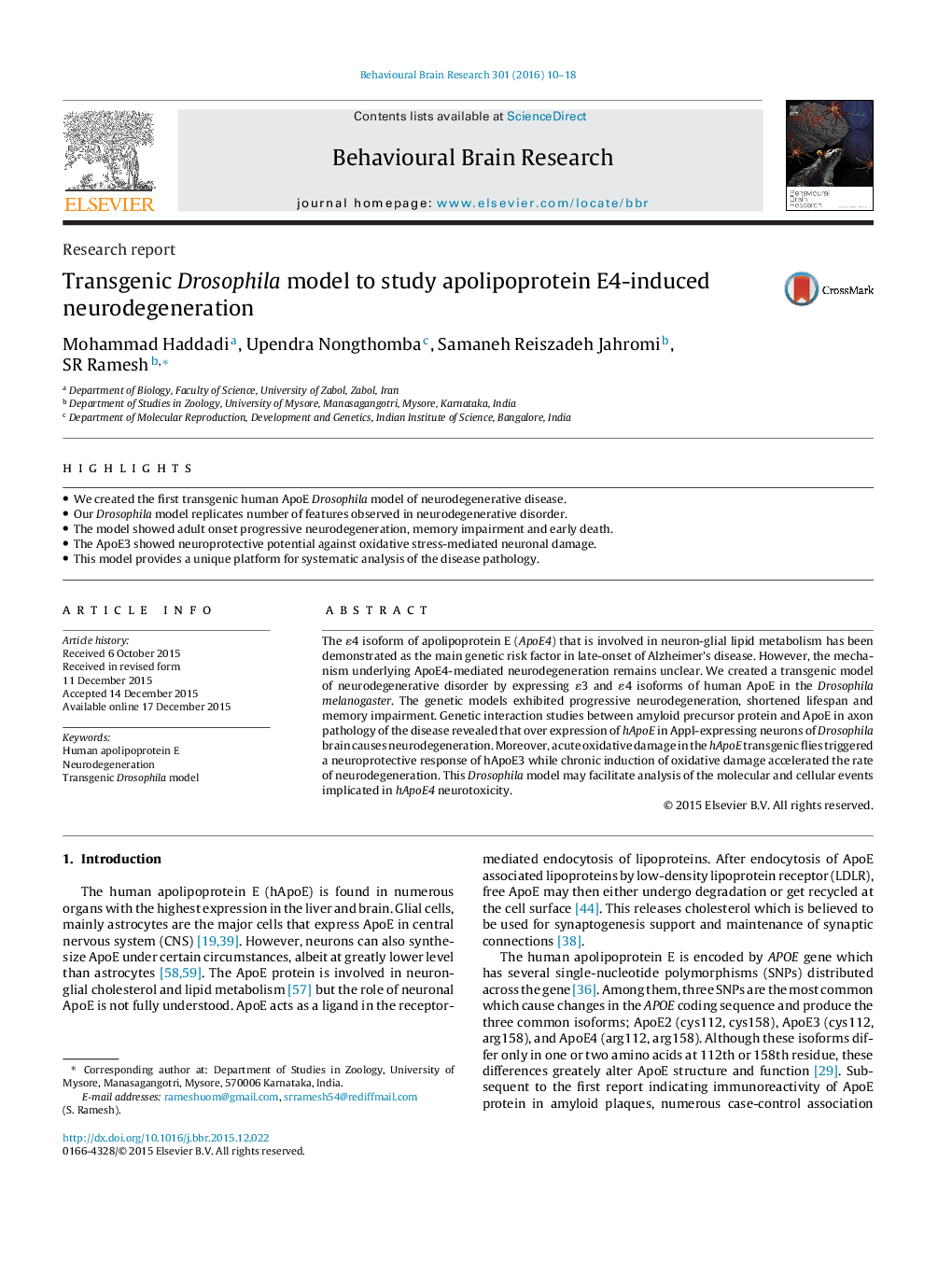| Article ID | Journal | Published Year | Pages | File Type |
|---|---|---|---|---|
| 4312281 | Behavioural Brain Research | 2016 | 9 Pages |
•We created the first transgenic human ApoE Drosophila model of neurodegenerative disease.•Our Drosophila model replicates number of features observed in neurodegenerative disorder.•The model showed adult onset progressive neurodegeneration, memory impairment and early death.•The ApoE3 showed neuroprotective potential against oxidative stress-mediated neuronal damage.•This model provides a unique platform for systematic analysis of the disease pathology.
The ε4 isoform of apolipoprotein E (ApoE4) that is involved in neuron-glial lipid metabolism has been demonstrated as the main genetic risk factor in late-onset of Alzheimer's disease. However, the mechanism underlying ApoE4-mediated neurodegeneration remains unclear. We created a transgenic model of neurodegenerative disorder by expressing ε3 and ε4 isoforms of human ApoE in the Drosophila melanogaster. The genetic models exhibited progressive neurodegeneration, shortened lifespan and memory impairment. Genetic interaction studies between amyloid precursor protein and ApoE in axon pathology of the disease revealed that over expression of hApoE in Appl-expressing neurons of Drosophila brain causes neurodegeneration. Moreover, acute oxidative damage in the hApoE transgenic flies triggered a neuroprotective response of hApoE3 while chronic induction of oxidative damage accelerated the rate of neurodegeneration. This Drosophila model may facilitate analysis of the molecular and cellular events implicated in hApoE4 neurotoxicity.
